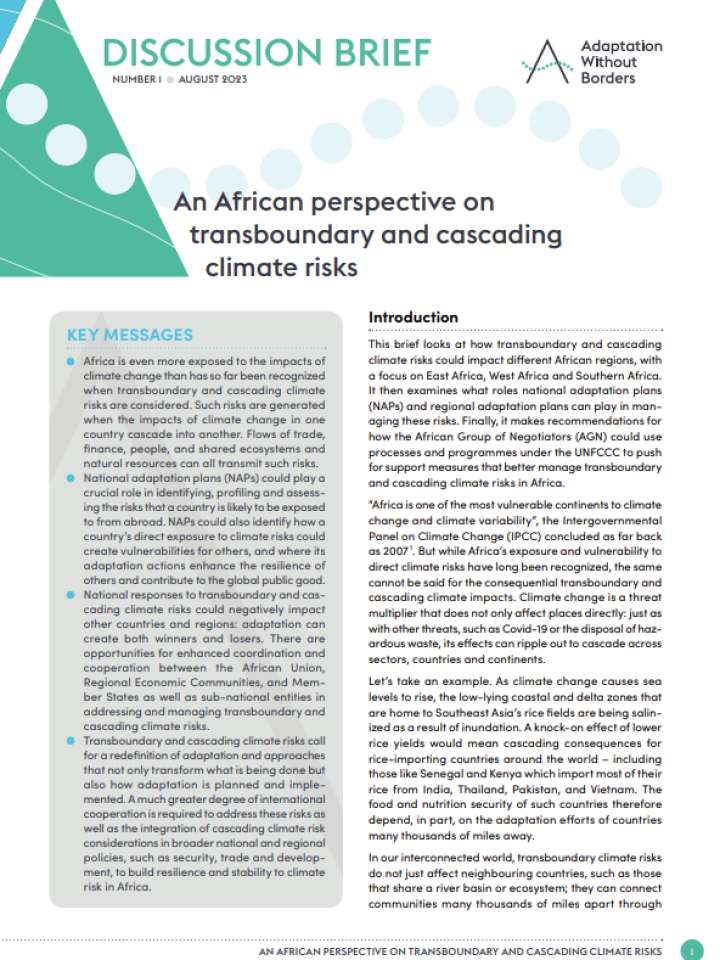An African perspective on transboundary and cascading climate risks
This brief looks at how transboundary and cascading climate risks could impact different African regions, with a focus on East Africa, West Africa and Southern Africa. It then examines what roles national adaptation plans (NAPs) and regional adaptation plans can play in managing these risks. Finally, it makes recommendations for how the African Group of Negotiators (AGN) could use processes and programmes under the UNFCCC to push for support measures that better manage transboundary and cascading climate risks in Africa.
The key messages include:
- Africa is even more exposed to the impacts of climate change than has so far been recognized when transboundary and cascading climate risks are considered.
- National adaptation plans (NAPs) could play a crucial role in identifying, profiling and assessing the risks that a country is likely to be exposed to from abroad.
- National responses to transboundary and cascading climate risks could negatively impact other countries and regions: adaptation can create both winners and losers.
- Transboundary and cascading climate risks call for a redefinition of adaptation and approaches that not only transform what is being done but also how adaptation is planned and implemented.
Explore further
